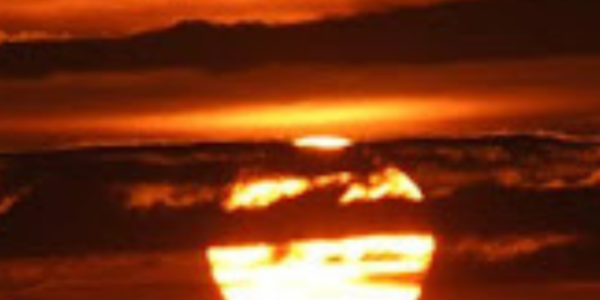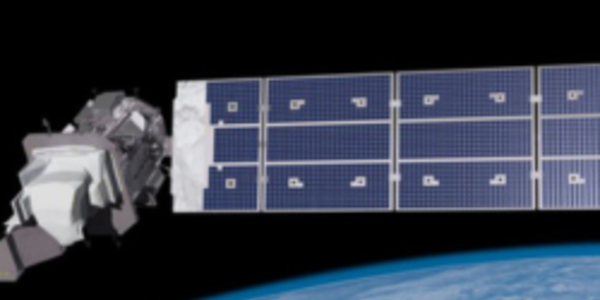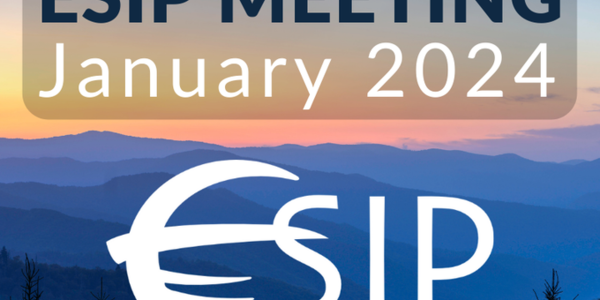
Here at NCEI, we aren’t just data—we are people. In our Humans of NCEI series, meet the awesome minds that manage one of the largest archives of atmospheric, coastal, geophysical, and oceanic research in the world. Get to know Nazila Merati, a Physical Scientist who leads and coordinates data management planning and data stewardship for long-term data preservation.
What is your job title?
Physical Scientist and NCEI’s Data Stewardship Division (DSD) Site Lead for Colorado.
What is your specific area of expertise?
My expertise is in data management planning and data stewardship for long-term data preservation. My time as a field biologist at NOAA’s National Marine Fisheries Service (NMFS), a research scientist at NOAA’s Pacific Marine Environmental Laboratory, and later as the data archivist for NMFS helped me understand and sympathize with data providers and the data management challenges that crop up when a project is completed and it's time to preserve the data.
What was your first job? How did it prepare you for your current position?
I was a Biological Technician at NMFS and worked on a cross-line office program to investigate the physical and biological processes involved in the Alaska pollock fishery (think fish sticks) which is the largest fishery by weight in the world. My position focused on laboratory work, data analysis, and fieldwork. I learned how to keep a laboratory notebook and the importance of collecting data and recording observations in real-time and how hard it is to go back even an hour later and remember all that was collected. Technology has solved many of these problems, but it is still good practice to observe and note in real-time.
How did you end up at NCEI?
In 2017, I left the private sector to return to NOAA to support NMFS’ efforts to archive their data at NCEI. I was matrixed to NCEI to gather archiving requirements to take back to NMFS to develop data preparation workflows and best practices. I also worked to develop an archiving workflow on the NCEI side to get the data into the archive. It was eye-opening to see the process from the archiving side and all the moving parts and procedures that go into data archiving. An NCEI colleague sent me a link to the job posting via a chat message, I opened up the announcement and saw my perfect job. I’ve been here since March 2020.
What does a usual workday look like for you?
I am in meetings most of the day. Some are project team status meetings and others are following up on actions and tasks with smaller groups. When I’m not in meetings, I follow up with tasks and actions including bringing in other colleagues to answer technical questions or provide operational information. My projects range from planning for data that won’t come to NCEI until 2025 to data calls that need my immediate attention. My days are never the same which keeps things lively. My colleagues are spread out across four time zones, so I like to get an early start to keep up with their schedules.
What question are you asked most often when someone finds out what you do? How do you respond?
When I say I work for NOAA, I get a lot of “Do you work with whales?”, “Is the Arctic changing?” or “Will it rain tomorrow?”. Data management and stewardship are not glamorous to most. I tell people that I help protect our data resources that feed into products and models that inform climate and marine research. I want to say that people have a lot of follow-up questions when I tell them what I do, but mostly they ask me questions about climate change.
What sort of training and education would one need for your job?
A degree in the biological or physical sciences is critical to understanding the data we archive. Understanding software engineering or system engineering would also be helpful to understand the technology and processes for archiving. Project management and business analyst training (either informal or formal) is essential for getting projects up and running. Emotional intelligence, good listening skills, facilitation, and management skills are also essential in connecting scientists, data providers, and our data stewardship divisions
What inspired you to pursue a career in your field?
When I graduated with my undergraduate degree, I wrote down a list of companies and agencies that intrigued me. The list included Weyerhaeuser, NOAA, University of Washington, and a few biomed companies and I started applying. I was fortunate enough to find a position at NMFS that looked interesting, and I took it. I had no idea I would become a sea-going biologist and where that would eventually lead me.
What projects are you working on now? Are there any upcoming projects that you are excited about?
I’m co-leading an effort to update our internal and external archiving guidance for our data managers, scientists, and data submitters to provide consistent and up-to-date information. I recently wrapped up a project with hydrographic data migration and am now working with our space weather scientists on requirements for archiving new data products and planning for future missions. I’m excited to see how the cloud will transform the way we archive and make data accessible to everyone.
What is your favorite aspect of your job?
The variety of tasks in a day (even with meetings and deadlines), meeting new people and their data, connecting my work to meeting NESDIS and NCEI mission goals, and the opportunity to help lead NCEI data stewardship efforts into the Cloud.
What challenges have you had to deal with in your career?
Being female in a predominantly male field of science and avoiding becoming pigeon-holed based on where you start, not where you should end up in your career.
Who are you outside of your career?
I’m a partner, daughter, loyal friend, dog mom, garden historian, and Auntie LaLa to my niece and nephew. I am also an inveterate traveler, avid needlepointer, accomplished baker, and people connector.
Is there anything else you would like people to know about you?
My virtual door is always open if you have questions or concerns. I may forget your name, but I’ll always remember your dog’s name. If you tell me you are planning a trip somewhere in Western Europe, I’ll insist that you go see some garden I’ve dreamed of visiting or have visited and would like others to visit. If you go to Paris, I’ll tell you where to go for the best chocolate.
*Please note that all of the information was current through the publication date.




